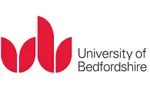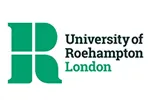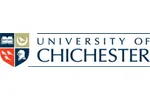Overview
Language shapes our experience of the world – from our social and emotional lives, to our experience of society, work, politics and culture. Immerse yourself in the nature of spoken and written language, and how it's used in everything from digital communication to forensic investigation.
You'll study how language works, including the relationships between language, the mind, and society, and how language varies through time, place, culture and identity. You'll explore the different ways people use language and what they use it for. Discover methods for analysing spoken and written language, how we learn language and how we teach it.
You'll develop sought-after skills including communication, creativity and critical thinking. You'll be taught by expert researchers and study alongside students within the School of Education, Languages and Linguistics – bringing opportunities to learn from the latest research and build intercultural relationships.
Course Highlights
- Discover how the use of language affects perceptions of important contemporary issues, such as gender, sexuality, education and globalisation
- Learn the linguistic skills to spot how language persuades and prejudices people – from what drives social movements on social media, to relationships in the workplace
- Develop the skills employers want, including analysis, criticism, negotiation, argument and problem solving
- Tailor your degree to suit your career ambitions, including options that equip you to work internationally, such as intercultural communication and teaching English as a second language
- Have the opportunity to do a work placement year after your second or third year on this Connected Degree - we're the only UK university to offer flexible sandwich placements for undergraduates
- Be taught by dedicated, expert researchers from the School of Education, Languages and Linguistics who specialise in areas including language and gender, English as a transnational language, the language of mental health, professional communication, sociolinguistics and translation
- Build skills in ‘corpus linguistics’ analysis – essential skills in a world where working with 'big data' is the future
- Choose to learn a foreign language for free as part of your degree, from a selection of Arabic, British Sign Language, French, German, Italian, Japanese, Mandarin or Spanish
Careers and opportunities
You’ll graduate with specialist expertise in language and linguistics, plus sought-after employability skills including:
- analytical techniques and reasoning
- communicating clearly to diverse audiences
- data collection and interpretation
- developing persuasive, evidence-based arguments
- problem solving
Previous graduates are now applying these skills in a diverse range of sectors and industries. If you decide to pursue a career that’s closely related to your studies, you could apply for jobs in writing, editing or publishing. Or employ your research and analysis skills to go on to postgraduate study, in areas such as speech therapy, communication studies, law and marketing.
This degree course gives you the freedom to explore topics and find areas you're most passionate about, and the foundation to pursue these areas after graduation. Further study in forensic linguistics could open up possible careers in law enforcement, criminal justice or legal firms. You could also develop your linguistic talents to work as a speech therapist or train actors to master different dialects.
You could work in any of the following areas:
- advertising
- education
- communication
- media
- marketing
- publishing
- technical writing
- teaching English
Previous graduates have gone onto further training and work in various fields, including:
- accountancy
- the armed forces and police
- banking
- research
- journalism
- law
- local government
- health services
- public relations and marketing
- publishing
- speech and language therapy
- teaching
















